
Almost overnight, a rare Chinese character has been reappopriated by internet users and is now one of the most popularly searched terms on the net. Thanks to World of Warcraft users, the word “yín”(烎), which originally meant bright, has been retrieved from relative obscurity and is now popping up in Chinese internet forums at an amazing pace. The term entered into the e-lexicon with astonishing speed, demonstrating the power yielded by Chinese netizens.
This is not the first seldom used character to be reappropriated by wide numbers of Chinese netizens (whose ranks number around 350 million). “Jiong” (囧) and “mei” (槑) were two characters that netizens granted new meanings, and new lives to, but neither took the internet by storm the way “yín” (烎) has. Read on to discover more ways Chinese netizens have been reconfiguring one of the world’s oldest writing systems to meet contemporary needs.
Although the meanings of these new words often differ greatly from their original meanings, their popularity is tied to the fact that they offer a convenient, and often deeper, mode of expression and style. However, at the same time, the unrestricted use of these words has made some internet users worried about the stability of their language.
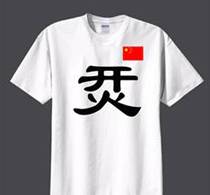
1) “Yin” (烎) originally meant bright and illuminated but as it’s been remixed by role-playing gamesters, it now means domineering, to declare war on one’s enemy, to show zeal for and to be good at fighting. It now describes someone who has plenty of fight in them; someone who is passionate or burning with righteous indignation; someone whose blood is boiling; someone who enjoys confrontation and battle; someone itching to prove themselves in battle with a greater adversary.
Here are some examples of how it is used:
“I can beat you [yin] as easily I can crush an ant!” (“烎你就像碾一只蚂蚁!”)
“Looks aren’t important in a man, what’s important is how manly [yin] he is.” (“男人,重要的不是帅,是烎!”)
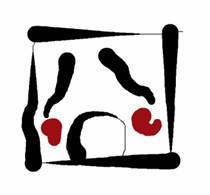
2) “Jiong” (囧), read as “jiǒng”, originates from the classic Chinese word “冏” which also originally meant bright. In internet culture, the “八” in the inside of the character looks like eyes and the “口” part looks like a mouth. So what does it mean? "Jiong" is most often used to express awkwardness and sadness – the character itself resembles someone with a pained expression. Read more about it here.
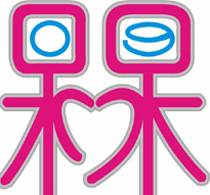
3) “Méi” (槑) is composed of the character “呆” (dai), which standing alone means stupid. When the two “dais” are put together it forms “méi” (槑), which has come to mean “extremely stupid and naive”.
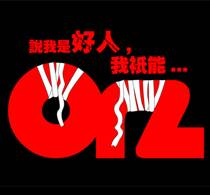
4) “orz” is actually a symbol representing a person kneeling on all fours with their head (the “o”) bowed. Often used in songs, and pronounced o-r-z, it indicates frustration, dismay and despair. In the wild world of online trash talking, it can also be used to indicate that someone has been defeated.
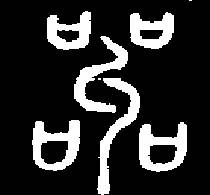
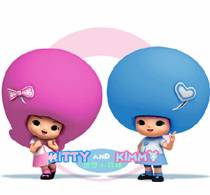
6) “Ma” (孖), pronounced “mā” means twin brothers. It’s currently used to represent clones, copies or duplicates.
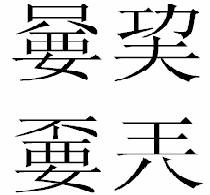
7) “嘦” (jiào) is composed of the characters “只要” (“zhǐ yào”) stacked on top of each other. When those two characters are read together quickly, they sound like “叫” (jiào). Though read, and configured differently, “jiào has the same meaning as “只要” (“zhi yao”) –as along as.
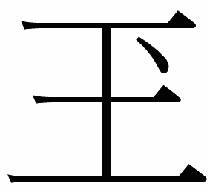
8) “玊” is read as “sù”. This character closely resembles “玉”, the character for jade. However, since the dot in this new character is on the top right side, the overall meaning of the word becomes flawed jade, or, as it’s sometimes used, vulgar.
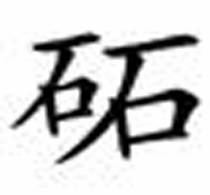
9)“Lè” (砳) is tricky even for native Chinese speakers. How can the characters for stone (石) (pronounced “shí”) become “lè” (乐, meaning “happiness”) when combined? Its original usage was as onomatopoeia for the sound of two rocks clinking together. Now it means “someone who cuts a path through the hilltops”, or in other words, a pioneer.
Source: gcpnews.com
Related Links
Feeling Oh So Awkward - Jiǒng
What’s in a Name? How English is Changing the Way Chinese Choose Names
The Future of Chinese Characters
Radical Simplification: Should Chinese Characters Be Erased?
Warning:The use of any news and articles published on eChinacities.com without written permission from eChinacities.com constitutes copyright infringement, and legal action can be taken.
All comments are subject to moderation by eChinacities.com staff. Because we wish to encourage healthy and productive dialogue we ask that all comments remain polite, free of profanity or name calling, and relevant to the original post and subsequent discussion. Comments will not be deleted because of the viewpoints they express, only if the mode of expression itself is inappropriate.
Please login to add a comment. Click here to login immediately.